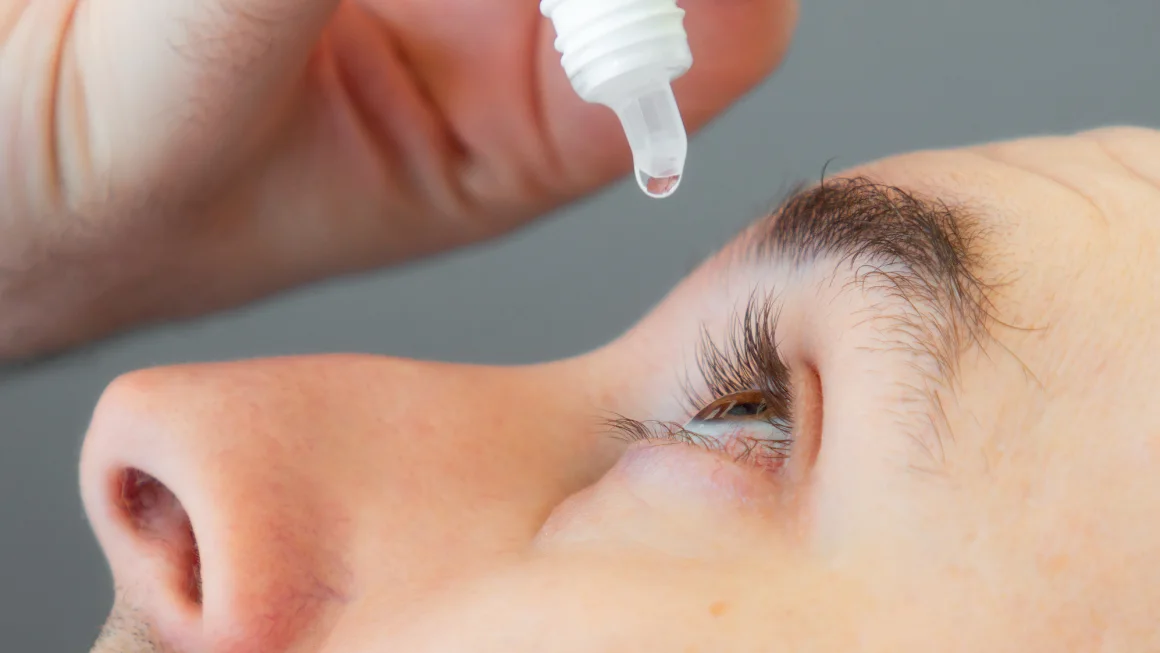
Best Eye Drops for Allergy Relief: Say 100%Goodbye to Itchy, Watery Eyes
Millions of people worldwide using Best Eye Drops for Allergy Relief and suffer from allergic eye conditions, which can be triggered by various allergens such as pollen, dust, pet dander, and mold. These allergens can lead to uncomfortable symptoms like itching, redness, swelling, and excessive tearing, making it difficult to go about daily activities.
Understanding Allergy Eye Symptoms
Allergic eye symptoms can vary from person to person but commonly include itching, burning, redness, tearing, and swollen eyelids. These symptoms can range from mild to severe and can significantly impact a person’s quality of life, especially during peak allergy seasons.
Importance of Best Eye Drops for Allergy
Allergy eye drops play a crucial role in managing allergic eye symptoms by providing relief from discomfort and irritation. Unlike oral allergy medications, which can have systemic side effects, eye drops target the affected area directly, providing fast and effective relief without the risk of drowsiness or dry mouth.
When selecting allergy eye drops, it’s essential to consider several factors to ensure you choose the most suitable option for your needs. These factors include the type of allergens you’re exposed to, the severity of your symptoms, any pre-existing eye conditions, and whether you wear contact lenses.
Top Ingredients to Look for in Best Eye Drops for Allergy
The efficacy of allergy eye drops largely depends on their active ingredients. Some of the top ingredients to look for include antihistamines, decongestants, mast cell stabilizers, and lubricants. These ingredients work together to relieve itching, reduce redness and swelling, and soothe irritated eyes.
Best Eye Drops for Allergy for Seasonal Allergies
Seasonal allergies, such as hay fever, are often triggered by outdoor allergens like pollen and grass. For seasonal allergy relief, look for eye drops that contain antihistamines like ketotifen or olopatadine, which can help alleviate itching and redness caused by pollen exposure.
Best Eye Drops for Allergy : Indoor Allergies
Indoor allergens like dust mites, pet dander, and mold can also trigger allergic eye symptoms. Opt for eye drops that contain mast cell stabilizers like sodium cromoglicate or nedocromil, which can help prevent the release of histamine and other inflammatory substances in response to indoor allergens.
Best Eye Drops for Allergy for Contact Lens Wearers
If you wear contact lenses, finding the right allergy eye drops is crucial to ensure compatibility with your lenses. Look for preservative-free formulations specifically designed for contact lens wearers to minimize the risk of irritation and discomfort.
Natural Remedies for Allergy Relief
In addition to traditional allergy eye drops, several natural remedies can provide relief from allergic eye symptoms. These include saline eye washes, cold compresses, and over-the-counter herbal remedies like eyebright and chamomile.
Tips for Using Allergy Eye Drops Effectively
To maximize the effectiveness of allergy eye drops, follow these tips:
- Wash your hands before applying eye drops.
- Lean your head backward and gently tug down your lower eyelid to form a small pocket.
- Place one drop in the pocket and avoid blinking for a few seconds to allow the drop to spread evenly.
- If needed, repeat the same steps for the other eye
- To prevent contamination, refrain from touching the tip of the eye drop bottle.
Possible Side Effects of Allergy Eye Drops
While allergy eye drops are generally safe for most people, they can cause side effects in some individuals. Common side effects may include temporary stinging or burning upon application, mild eye irritation, and blurred vision. If you experience persistent or severe side effects, discontinue use and consult your eye care provider.
When to Consult a Doctor
If your allergic eye symptoms persist despite using over-the-counter eye drops or if you experience severe symptoms like eye pain, sensitivity to light, or vision changes, it’s essential to seek medical attention promptly. Your eye care provider can determine the underlying cause of your symptoms and recommend appropriate treatment options.
Conclusion about Best Eye Drops for Allergy
Finding the best eye drops for allergy relief can significantly improve your quality of life by providing fast and effective relief from uncomfortable symptoms. By understanding your specific allergy triggers and choosing eye drops with the right ingredients, you can enjoy clearer, more comfortable vision even during allergy season.
FAQs about Best Eye Drops for Allergy
Can allergy eye drops be used with other allergy medications?
- Yes, allergy eye drops can typically be used alongside oral allergy medications like antihistamines or nasal sprays for comprehensive allergy relief.
How often should I use allergy eye drops?
- The frequency of use will depend on the specific product and your individual symptoms. Follow the instructions on the packaging or consult your eye care provider for guidance.
Are prescription allergy eye drops more effective than over-the-counter options?
- Prescription allergy eye drops may be more potent and offer additional benefits for severe or persistent symptoms. However, many over-the-counter options can provide effective relief for mild to moderate symptoms.
Can children use allergy eye drops?
- Some allergy eye drops are suitable for children, but it’s essential to follow age-specific dosing recommendations and consult a pediatrician if you have any concerns.
Are there any lifestyle changes that can help reduce allergic eye symptoms?
- In addition to using allergy eye drops, avoiding allergens, keeping windows closed during peak pollen seasons, using air purifiers, and regularly cleaning bedding can help minimize allergic eye symptoms.



